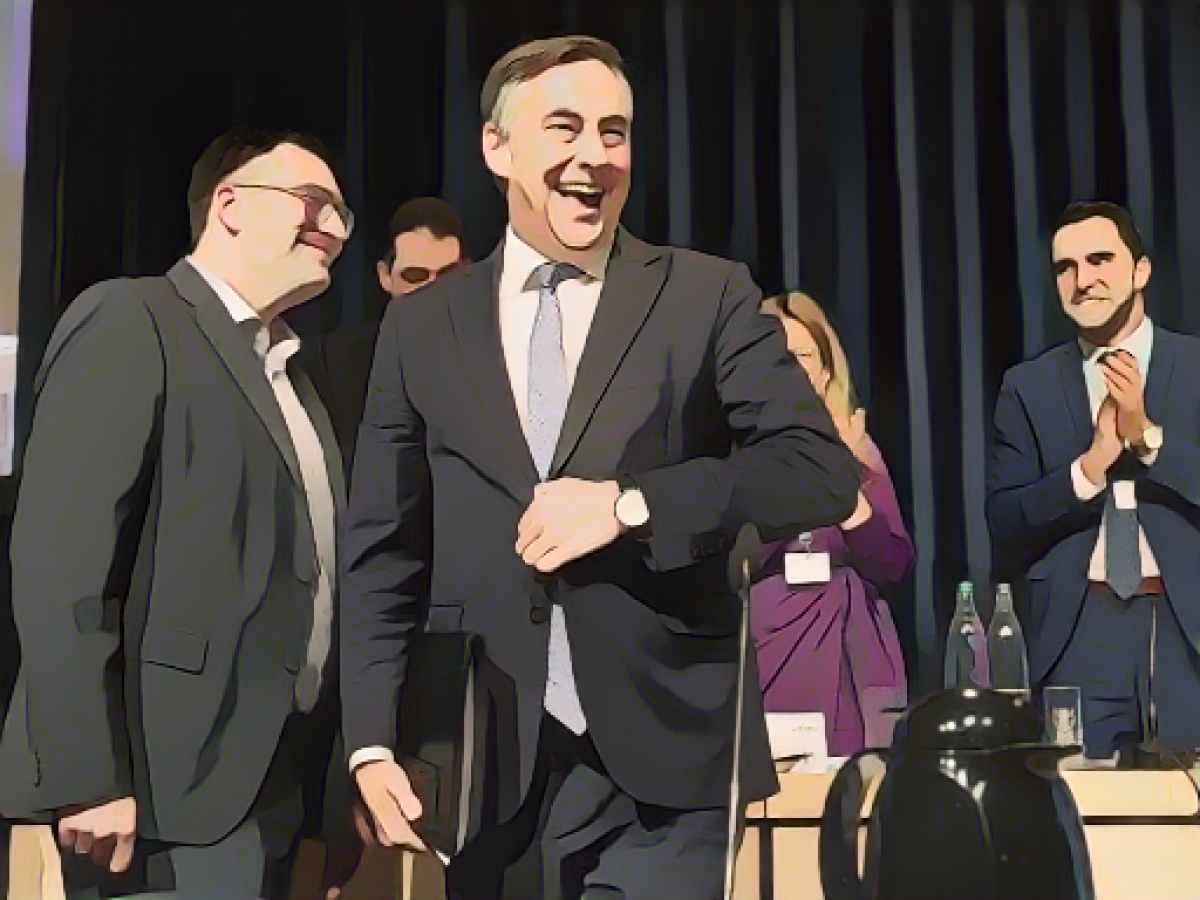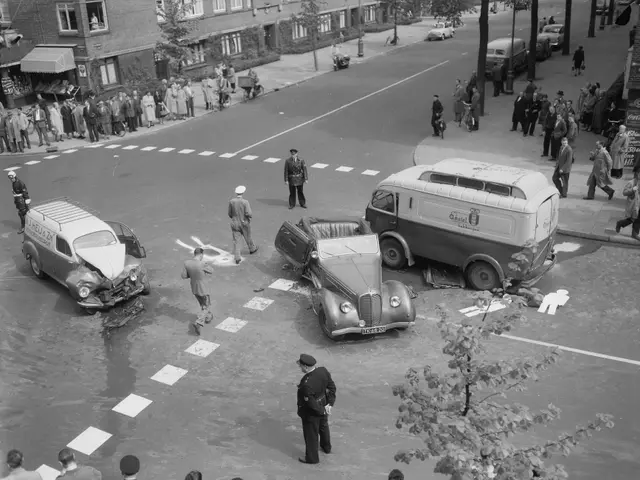CDU Gears Up for Local Elections: Regaining Momentum in Mecklenburg-Vorpommern
The regional CDU in Mecklenburg-Vorpommern is determined to make a significant comeback ahead of the 2026 state elections, following their disappointing results in the 2021 elections. The upcoming local elections on June 2024 serve as a critical stepping stone towards regaining lost ground, as per state party leader Franz Robert Liskow, who highlighted these elections as an important milestone at the recent party conference in Rostock.
Franz Robert Liskow and other delegates approved the CDU's guidelines for the local elections, aiming to restore the CDU's reputation as a formidable political force in the region. Jascha Dopp, nominated by a wide majority for the Senate elections, will spearhead the party's campaign in the European polls, after falling short in the 2019 elections.
The CDU has been going through a renewal process, characterized by a growing recognition among voters, as per Liskow. Though they managed to secure 13.3% of the votes in the 2021 state election, they were pushed out of power. The ongoing transformation is now showing signs, with approval ratings in the northeast region hovering at about 20%.
"Our party has been revitalized," Liskow asserted, expressing optimism for the state elections. The Union aims to maintain its status as the leading local political force, having clinched approximately 25% of seats in district and municipal councils in 2019.
Liskow and CDU General Secretary Carsten Linnemann lambasted the Berlin traffic light coalition and the red-red Schwerin government for their failure to address the multitude of current crises. The Union leaders criticized the government for disregarding real-world issues and labeling them conspiracy theories. Linnemann accused Schwerin state Minister President Manuela Schwesig of prioritizing self-promotion over effective governance.
The CDU's 10-page policy document for the local elections calls for enhanced autonomy and scope for local politicians in Mecklenburg-Vorpommern. The party has emphasized their commitment to revitalizing municipalities, reducing government intervention, and increasing financial leeway for local entities.
The party's manifesto also highlights key policy areas such as migration, education, public transportation, and healthcare, which will shape their local election campaign. The CDU advocates for stricter migration control to prevent overburdening municipalities, improved school facilities, enhanced local public transport, and bolstered healthcare in rural areas. Furthermore, they propose capping school meal expenses at €4.50 per day and require a mandatory distance of 1,000 meters between residential buildings and wind turbines for sustainable energy transition.
The CDU's target for the upcoming local elections is to demonstrate their ability to campaign effectively and present a united front. Their goal is to revive voters' trust and strengthen their position in the 2026 state elections, with a focus on Mecklenburg-Vorpommern's continued representation in Brussels.
As CDU leader Friedrich Merz looks poised for the chancellorship, local election strategies may reflect national policies appealing to the broader electorate. By addressing pressing regional issues and reestablishing trust with voters, the CDU aims to return to prominence in Mecklenburg-Vorpommern.
Source:
Enrichment Insights:
- While the CDU's strategy for the local elections in Mecklenburg-Vorpommern is not fully detailed in the sources, they are likely to address housing affordability and removal of bureaucratic obstacles. Similarly, tax incentives may be offered to landlords providing affordable rent and protections for tenants.
- The CDU's renewal strategy and ongoing transformation are reflected in their improving approval ratings, currently at 20%. However, these ratings are still considered low in the northeast region.
- In the wake of the 2021 election defeats, the Union is keen on rebuilding investor confidence in Mecklenburg-Western Pomerania. By emulating success stories from other CDU-led states such as Saxony-Anhalt, the region could attract more investment and bolster economic growth.
- The CDU may emphasize local development initiatives, focusing on improving infrastructure, supporting local businesses, and reinforcing public services to regain voter trust.
- The national leadership's focus on practical solutions to pressing issues like the rental crisis and commitment to addressing housing shortages in regions like Mecklenburg-Vorpommern is likely to guide the local election strategies.








